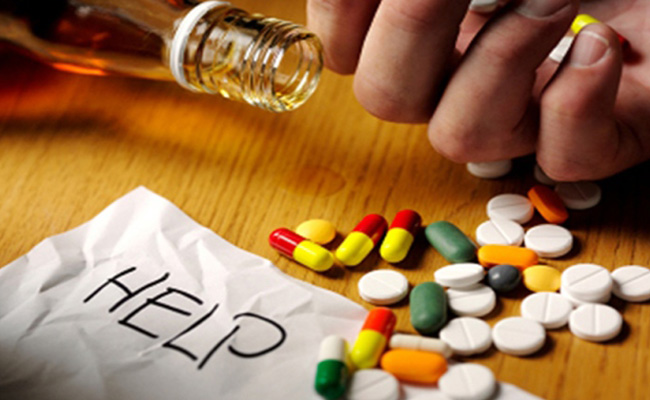Abusing Drugs – What is Drug Abuse?
It is often difficult to understand why or how someone becomes addicted to drugs. You may be shocked to know that many addicts do not look like those portrayed on television. But like every day people you see walking down the sidewalk. Some may mistakenly think that those who become addicted lack morals, principles, or even willpower. But this is not true. In fact, many addicts may wish to stop and cannot. In reality, addiction is a complex disease that takes much more than good intentions or a strong enough will to stop. This is because drugs change the way the brain functions. The good news is that research has taught us more about abusing drugs in recent years than ever before. Including how the brain recovers. This means that former addicts can go on to lead productive lives after ending the active addiction.
Substance Use Disorder
Technically, drug abuse is no longer a diagnosis. Instead it is now known as substance use disorder. This does not change the meaning, just the diagnosis name. It is still a chronic disease that is characterized by drug seeking and use that is compulsive in nature, as well as difficult to control, in spite of harmful or negative consequences. For the most part, choosing to use drugs for the first time is on purpose or voluntary, but with repeated use this can lead to brain changes that affect the person’s self-control and ability to resist urges to use again. These changes can be persistent and long lasting which is why this is classified as a relapsing disease. Those that stop using are at an increased risk to begin using again.
Though relapse is common, it does not mean treatment did not work, but as with other chronic health issues, it must be ongoing. Treatment should also be adjusted based on how each individual responds. This may mean it needs to be modified with each relapse or over time to meet changing needs.
Must Do Things
If you have a family member or loved one that is using and abusing drugs then it can be hard to know what to do or how to help. Perhaps you have tried some options, but without success. It can be a scary to think that your loved one is struggling and you may want to do all you can to help. But some find that their help pushed addiction further. This is because some forms of help are actually enabling. Some of the must do things for family members of an addict will be shared and then explained below.
There are five essential things to do if your loved one has an addiction. Whether it be to gambling, food, alcohol, or drugs, these are essential to better understanding and actually getting help for your loved one.
- Education
- Do not allow abuse
- Do not enable
- Seek help
- Self-care
Education
One of the best things you can do for yourself and your loved one is to be educated about addiction. The old saying is true, knowledge is power. You should not only be aware of the clinical definitions of addiction, but the signs and symptoms that may be occurring that you have not noticed. It is often much simpler to overlook signs than to acknowledge that a problem may exist. Along the same lines, some symptoms and signs may not seem odd until taken in context with other signs. A crumbled-up piece of tin foil may not send up red flags, but if there are burn marks or other signs, then a meth addiction may come to light. This is why being educated is so important.
Do Not Allow Yourself to Be Abused
It seems weird to be concerned about yourself when someone else has a drug issue, but it is quite common for family members and friends of drug addicts to be abused in a variety of ways. Emotional abuse is the most common form of abuse as irritability and mood swings are common for addicts. Additionally, addicts often steal from those closest to them to support their habit. In some circumstances, physical or sexual abuse may also occur in relation to the drug abuse. Just because a person is using drugs is not an excuse to accept abuse. If abuse occurs then seek help from a counselor or the authorities as needed.
No Enabling
It can be tempting to hide an addiction from those outside the family or not confront an addict about their behavior, but allowing them to do things that are wrong, illegal, or abusive is not helping you or the person with the drug use issue. It is okay to allow the user to suffer the consequences of their behavior. In some cases, these may be an extreme consequence such as jail or job loss, but this could be a wake-up call for the person abusing drugs. Learn to set boundaries and stick to them. If the family has chores, rules, a curfew, etc. then expect the addict to stick to it or deal with the consequences. If the person is continually given a free pass then they will take further advantage.
There are many support groups for those with loved ones who have addiction issues. Groups like Al-Anon or Nar-Anon can help you learn to set boundaries and deal with the stress of having an addict in the family. Individual therapy can also be helpful for those uncomfortable with group settings. Just know that if an addiction gets extreme steps may need to be taken to cut the addict out of your life. You must take care of yourself.
Seek Help
Much like avoiding enabling the person, you must take care of yourself if you are being brought down by someone in your life abusing drugs or alcohol. If your life, livelihood, housing, or finances are being affected, then seek professional help immediately. Private counseling is an excellent resource for this.
Take Care of Yourself
Above all else, take care of your own health and well-being. It may feel selfish, but if your mental or physical health decline, then you are not useful for anyone else. This can be tough, but when you need a break, a day or a week or whatever, take it to relax, unwind, and renew yourself.
Getting Help

If you or a loved one are abusing drugs or have an addiction, then seek help. DARA offers an in-patient rehab with a luxurious setting in several countries that can help get life back on track, addiction free. DARA uses a holistic approach to getting into recovery. You and your loved one are worth the effort.
CLICK HERE to get a Free Confidential Addiction Rehabilitation Assessment. Alternatively, you can click on the live chat icon to chat with someone right now.


















